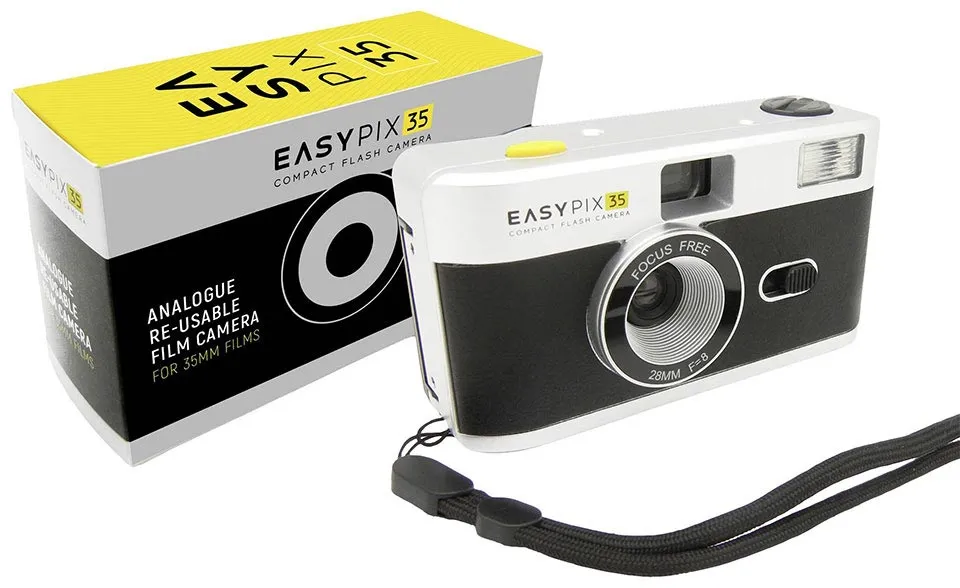

Still Shooting Film? You’re Not Alone – Why Traditional Photography Is Thriving Again
A quiet revival has been bubbling up across Ireland. You may have noticed more people walking around with 35mm film cameras, dusting off their disposables, or proudly sharing their black and white film shots online. In a world flooded with digital everything, more and more photographers — from total beginners to seasoned pros — are falling back in love with traditional film photography.
And honestly? We get it. We love it too.
At Print35, we’ve always had a soft spot for film. While many photo labs across the country stopped offering film developing for a while, we never did. In fact, it’s become one of the biggest parts of our business.
📷 Why Are So Many People Returning to Film?

There’s something special about film. It’s slower. It’s deliberate. It’s tactile. You can’t just shoot 200 versions of the same image and pick one later. Every frame counts.
That pressure — that pause before you press the shutter — it’s what gives film its soul. And when you finally get your developed roll back? It’s a small moment of magic.
Film forces you to be present. To compose carefully. To trust your instincts. And for many photographers, that process is just as rewarding as the final image.
🧪 Developing Film in Ireland: What Are Your Options?
If you’ve recently picked up a film camera or discovered an old roll hiding in a drawer, you’ve probably searched “where to develop film in Ireland” or “film camera developing near me”. The good news is that film is very much alive.
From 35mm colour rolls to black and white negatives and even medium format, there are still specialist labs in Ireland that develop film with care. Some accept mail-in processing, others offer in-store drop-off. Either way, it’s worth avoiding the cheap automated kiosks — film deserves better.
You’ll get cleaner scans, better colour control and real human eyes making sure everything is handled with precision.
🔁 Disposable Cameras Are Back Too

Yes, those little plastic cameras from the 90s? They’re having a moment.
A lot of younger photographers — and even wedding guests — are picking up disposable cameras as a fun, low-pressure way to shoot. The results are often unpredictable and filled with charm, and more labs are now offering disposable camera film development again.
Just be sure to check whether your local lab still supports them — many don’t. (We still do.)
🧑🎨 Film Photography Is a Hobby That Slows You Down (In a Good Way)
With film, there’s no auto-fix, no app filters, no infinite memory card. And that’s the whole point.
It’s a slower, more thoughtful process that reminds us why we picked up a camera in the first place. Whether you’re developing your own black and white film in a darkroom, sending out your first roll from a vintage Canon AE-1, or shooting on a cheap disposable — it all counts.
Communities like Ireland Analog (https://www.instagram.com/irelandanalog/) and online film groups are making it easier than ever to learn, share and get inspired. There’s never been a better time to dive in.
📦 Looking to Develop Your Film?
We don’t want to turn this into a sales pitch — but if you’re looking for somewhere to send your film, we’re here.
At Print35, we’ve been developing film since the beginning. While other labs paused their services or dropped them altogether, we kept going. It’s a core part of what we do.
We process…
- 35mm and medium format film
- Black and white and colour (C-41)
- Disposable cameras
- Push/pull processing
- And we scan everything to high-resolution digital files
Everything is processed in-house by experienced lab techs using professional chemistry and equipment — no shortcuts, no machines doing all the thinking.
If you’re new to film, we’ll help you get started. If you’re a long-time shooter, we’ll treat your rolls like our own.
Want to keep shooting film in Ireland? You’re in good company.
Film’s not just alive — it’s thriving.
